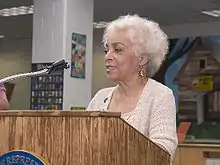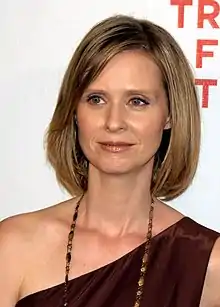Grammy Award for Best Spoken Word Album
Der Grammy Award for Best Spoken Word Album, auf deutsch „Grammy-Auszeichnung für das beste gesprochene Album“, ist ein Musikpreis, der seit 1959 von der amerikanischen Recording Academy für Tonaufzeichnungen von Reden, Dokumentationen, Theateraufführungen und Hörbüchern verliehen wird.[1]
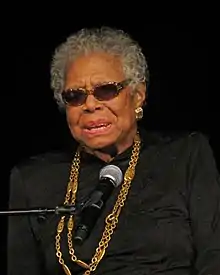
Geschichte und Hintergrund
Die seit 1959 verliehenen Grammy Awards werden jährlich in zahlreichen Kategorien von der Recording Academy in den Vereinigten Staaten vergeben, um künstlerische Leistung, technische Kompetenz und hervorragende Gesamtleistung ohne Rücksicht auf die Album-Verkäufe oder Chart-Position zu würdigen.[2]
Eine dieser Kategorien ist der Grammy Award for Best Spoken Word Album.[3] Der Preis wird seit 1959 jährlich vergeben.
Die Preiskategorie hat seit der Erstverleihung einige kleinere Namensänderungen erfahren:
- Die Erstverleihung 1959 erfolgte unter dem Namen Grammy Award for Best Performance, Documentary or Spoken Word
- Von 1960 bis 1961 hieß die Auszeichnung Grammy Award for Best Performance – Documentary or Spoken Word (other than comedy)
- Von 1962 bis 1963 erfolgte die Verleihung als Grammy Award for Best Documentary or Spoken Word Recording (other than comedy)
- Von 1964 bis 1965 nannte sich die Kategorie Grammy Award for Best Documentary, Spoken Word or Drama Recording (other than comedy)
- 1966 nannte sich der Preis Grammy Award for Best Spoken Word or Drama Recording
- Von 1967 bis 1968 wurde der Grammy Award for Best Spoken Word, Documentary or Drama Recording vergeben
- Von 1969 bis 1979 hieß der Preis Grammy Award for Best Spoken Word Recording
- Von 1980 bis 1983 hieß er wieder Grammy Award for Best Spoken Word, Documentary or Drama Recording
- Von 1984 bis 1991 nannte er sich Grammy Award for Best Spoken Word or Non-Musical Recording
- Von 1992 bis 1997 wurde die Auszeichnung Grammy Award for Best Spoken Word or Non-Musical Album genannt
- Seit 1998 wird der Preis unter der Bezeichnung Grammy Award for Best Spoken Word Album verliehen.
Die Kategorie Grammy Award for Best Spoken Word Album wurde unter anderem an drei US-Präsidenten vergeben: Jimmy Carter, der den Preis dreimal gewonnen hat, Bill Clinton und Barack Obama. Auch Tonaufzeichnungen der US-Präsidenten John F. Kennedy and Franklin D. Roosevelt wurden bereits ausgezeichnet.
Gewinner und Nominierte
| Jahr | Gewinner | Nationalität | Album | Nominierte | Bild des/der Gewinner(s) |
|---|---|---|---|---|---|
| 1959 | Stan Freberg | The Best of the Stan Freberg Shows |
|
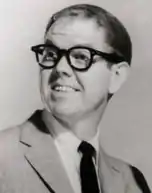 | |
| 1960 | Carl Sandburg | A Lincoln Portrait |
|
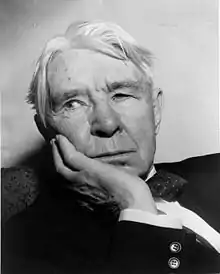 | |
| 1961 | Robert Bialek (Produzent) | FDR Speaks |
|
||
| 1962 | Leonard Bernstein | Humor in Music |
|
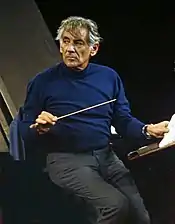 | |
| 1963 | Charles Laughton | The Story-Teller: A Session with Charles Laughton |
|
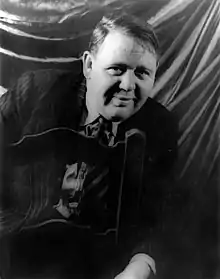 | |
| 1964 | Melinda Dillon, George Grizzard, Uta Hagen und Arthur Hill | Who's Afraid of Virginia Woolf? |
|
||
| 1965 | That Was The Week That Was Ensemble | BBC Tribute to John F. Kennedy |
|
||
| 1966 | Goddard Lieberson (Produzent) | John F. Kennedy: As We Remember Him |
|
||
| 1967 | Edward R. Murrow | Edward R. Murrow: A Reporter Remembers, Vol. I – The War Years |
|
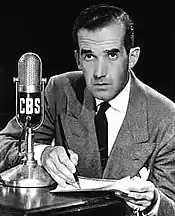 | |
| 1968 | Everett Dirksen | Gallant Men |
|
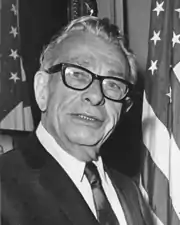 | |
| 1969 | Rod McKuen | Lonesome Cities |
|
||
| 1970 | Art Linkletter und Diane Linkletter | We Love You, Call Collect |
|
||
| 1971 | Martin Luther King, Jr. | Why I Oppose the War in Vietnam |
|
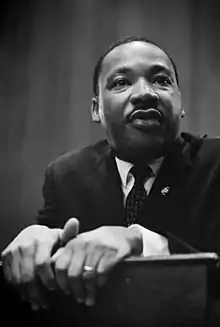 | |
| 1972 | Les Crane | Desiderata |
|
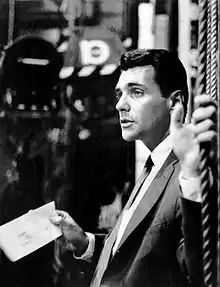 | |
| 1973 | Broadway-Ensemble | Lenny |
|
||
| 1974 | Richard Harris | Jonathan Livingston Seagull |
|
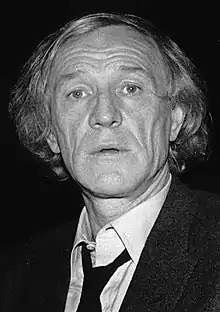 | |
| 1975 | Peter Cook und Dudley Moore | Good Evening |
|
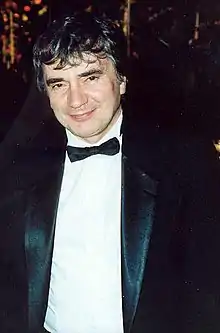 | |
| 1976 | James Whitmore | Give ’Em Hell, Harry! |
|
||
| 1977 | Henry Fonda, Helen Hayes, James Earl Jones und Orson Welles | Great American Documents |
|
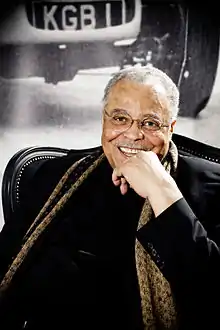 | |
| 1978 | Julie Harris | The Belle of Amherst |
|
||
| 1979 | Orson Welles | Citizen Kane (Original Motion Picture Soundtrack) |
|
||
| 1980 | John Gielgud | Ages of Man (Readings from Shakespeare) |
|
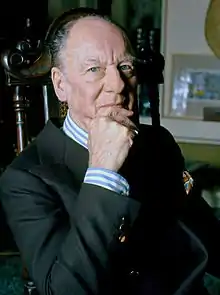 | |
| 1981 | Pat Carroll | Gertrude Stein, Gertrude Stein, Gertrude Stein |
|
||
| 1982 | Orson Welles | Donovan’s Brain |
|
||
| 1983 | Tom Voegeli | Raiders of the Lost Ark: The Movie on Record |
|
||
| 1984 | William Warfield | Copland: Lincoln Portrait |
|
||
| 1985 | Ben Kingsley | The Words of Gandhi |
|
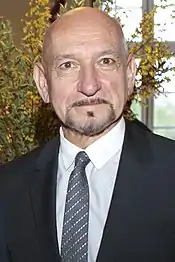 | |
| 1986 | Mike Berniker (Produzent) und das Broadway-Ensemble | Ma Rainey’s Black Bottom |
|
||
| 1987 | Johnny Cash, Jerry Lee Lewis, Chips Moman, Ricky Nelson, Roy Orbison, Carl Perkins und Sam Phillips | Interviews from the Class of ’55 Recording Sessions |
|
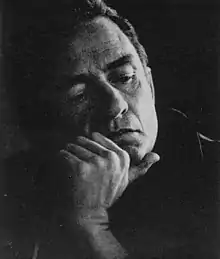
| |
| 1988 | Garrison Keillor | Lake Wobegon Days |
|
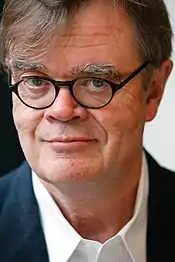 | |
| 1989 | Jesse Jackson | Speech by Rev. Jesse Jackson, July 27 (from One Lord, One Faith, One Baptism) |
|
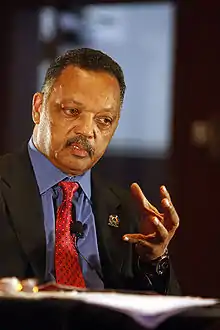 | |
| 1990 | Gilda Radner | It’s Always Something |
|
||
| 1991 | George Burns | Gracie: A Love Story |
|
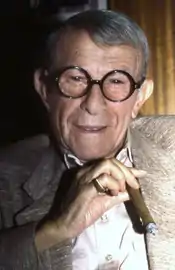 | |
| 1992 | Ken Burns | The Civil War |
|
 | |
| 1993 | Earvin "Magic" Johnson und Robert O’Keefe | What You Can Do to Avoid AIDS |
|
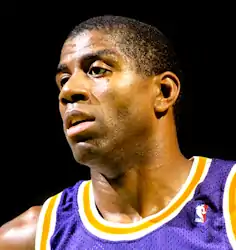 | |
| 1994 | Maya Angelou | On the Pulse of Morning |
|
 | |
| 1995 | Henry Rollins | Get in the Van: On the Road with Black Flag |
|
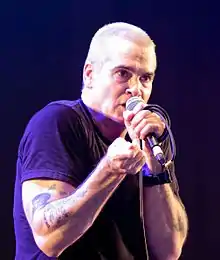 | |
| 1996 | Maya Angelou | Phenomenal Woman |
|
 | |
| 1997 | Hillary Clinton | It Takes a Village |
|
 | |
| 1998 | Charles Kuralt | Charles Kuralt’s Spring |
|
||
| 1999 | Christopher Reeve | Still Me |
|
.jpg.webp) | |
| 2000 | LeVar Burton | The Autobiography of Martin Luther King, Jr. |
|
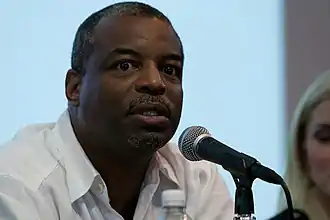 | |
| 2001 | Sidney Poitier | The Measure of a Man |
|
.jpg.webp) | |
| 2002 | Quincy Jones | Q: The Autobiography of Quincy Jones |
|
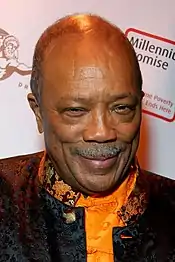 | |
| 2003 | Maya Angelou | A Song Flung Up to Heaven |
|
 | |
| 2004 | Al Franken | Lies and the Lying Liars Who Tell Them |
|
.jpg.webp) | |
| 2005 | Bill Clinton | My Life |
|
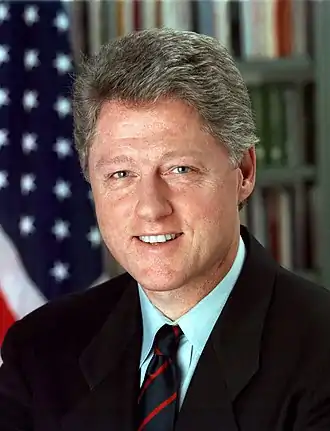 | |
| 2006 | Barack Obama | Dreams from My Father |
|
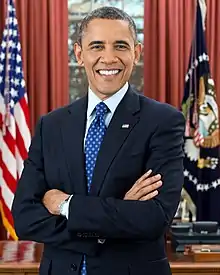 | |
| 2007 | Jimmy Carter | Our Endangered Values |
|
.jpg.webp) | |
| Ossie Davis und Ruby Dee | Ossie and Ruby | 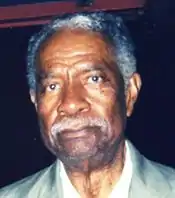
| |||
| 2008 | Barack Obama | The Audacity of Hope |
|
 | |
| 2009 | Beau Bridges, Cynthia Nixon und Blair Underwood | An Inconvenient Truth |
|
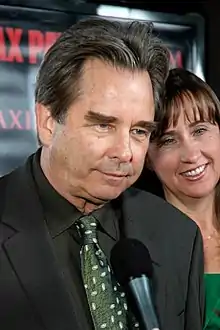
| |
| 2010 | Michael J. Fox | Always Looking Up |
|
_(2).jpg.webp) | |
| 2011 | Jon Stewart und Mitarbeiter von The Daily Show | Earth (The Audiobook) |
|
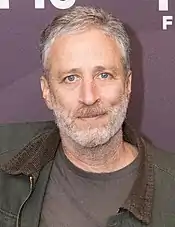 | |
| 2012 | Betty White | If You Ask Me (and of Course You Won't) |
|
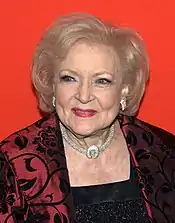 | |
| 2013 | Janis Ian | Society’s Child |
|
 | |
| 2014 | Stephen Colbert | America Again: Re-becoming The Greatness We Never Weren’t |
|
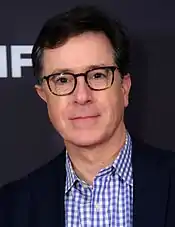 | |
| 2015 | Joan Rivers | Diary of a Mad Diva |
|
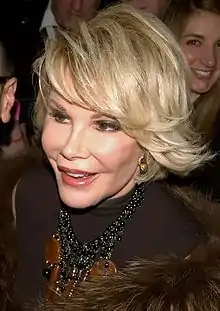 | |
| 2016 | Jimmy Carter | A Full Life: Reflections at 90 |
|
.jpg.webp) | |
| 2017 | Carol Burnett | In Such Good Company: Eleven Years of Laughter, Mayhem, and Fun in the Sandbox |
|
.jpg.webp) | |
| 2018 | Carrie Fisher | The Princess Diarist |
|
 | |
| 2019 | Jimmy Carter | Faith: A Journey for All |
|
.jpg.webp) | |
| 2020 26. Januar 2020 |
Michelle Obama | Becoming |
|
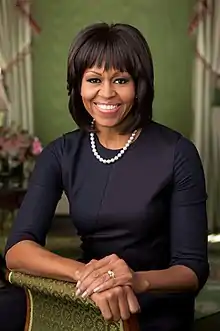 | |
| 2021 14. März 2021 |
Rachel Maddow | Blowout: Corrupted Democracy, Rogue State Russia, and the Richest, Most Destructive Industry on Earth |
|
 |
Weblinks
- Offizielle Website der Grammy Awards – Recording Academy, Los Angeles (englisch)
- Gewinner des Grammy Award for Best Spoken Word Album bei grammy.com (englisch)
Einzelnachweise
- Grammy Awards. Abgerufen am 8. April 2019 (englisch).
- The Official Site of the Grammy Awards – Overview. Abgerufen am 8. April 2019 (englisch).
- Winner Best Spoken Word Or Non-musical Album. Abgerufen am 8. April 2019 (englisch).
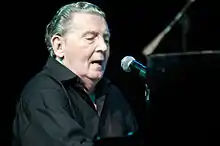
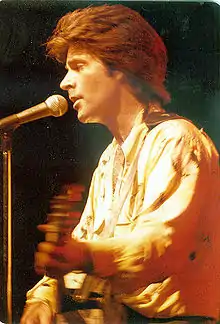
.jpg.webp)
